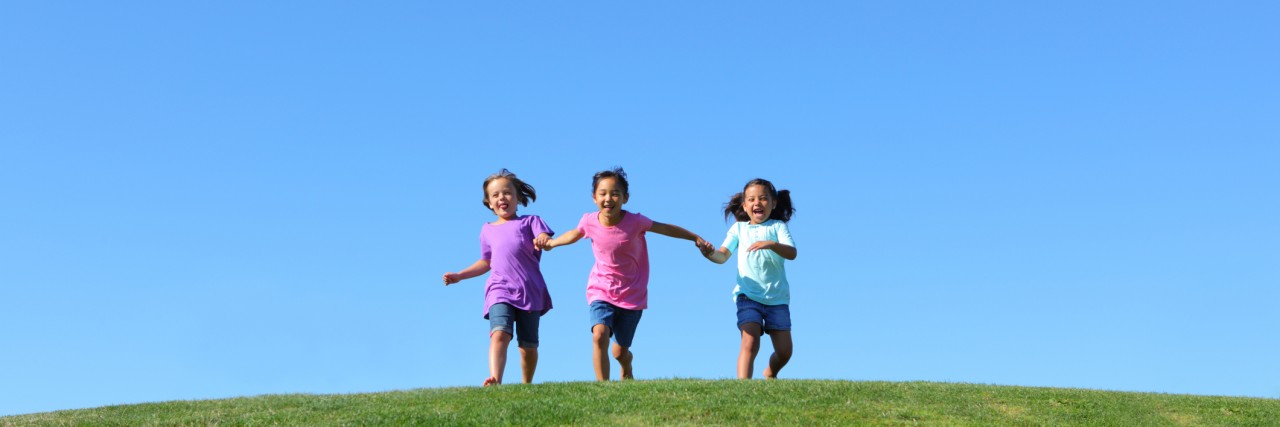I wanted so desperately to talk to Suchin and Lucky, the 8-year-old twin sons of my parents’ friends who were visiting us from India. But my anxiety, circular thinking, and “what-if” questions got the better of me. So, I stood in the corner of our living room pretending to be obsessed with a Lego castle I had constructed earlier that day.
My dad finally moseyed over and knelt down next to me. In his ever-gentle tone he nudged, “Suchin and Lucky are exactly your age, you know. Maybe you can ask them to play.”
“Do I have to? Maybe they don’t want to play.” I glanced over at them now sitting on the sofa staring into space and continued, “They look… busy.”
“Honey, I’m pretty sure if you asked, they’d love to build something with you or go outside on the swing set. What do you think?”
“OK, but I feel nervous.”

My dad rubbed my back. He was all too familiar with my anxious episodes and knew the best way to connect with me was with patience and empathy. After a minute or so, my dad squeezed his index finger and thumb really close together until they almost touched and said, “Listen honey, all you need is the tiniest bit of bravery. Just this iddy biddy bit. Think about it and try to talk to them.”
I reflect on that day sometimes. I think about how I finally mustered up what I thought was courage, and asked the boys with mostly hand gestures to play outside. I think about how Suchin and I became the best of friends and remain close to this day. But I also think often about whether the antidote to anxiety is just a little bit of courage. In fact, I wonder, what is the opposite of anxiety?
If we look at it from a physiological perspective, in the throes of anxiety our bodies kick off the flight-or-fight response — our automated threat response system that releases a cascade of hormones to give us the strength and speed to deal with objective danger. When this alarm goes off, we have some very physical symptoms: our heart races, our breath is shallow, our palms get sweaty, etc. If this response encapsulates anxiety, then the opposite is not courage. The opposite of the fight-or-flight is the rest-and-digest mode, or perhaps just the feeling of peace.
When I think about anxiety, however, I think of it more holistically than just what is happening to my body. I think about the journey of my anxious mind. For example, when I wanted to go talk to Suchin and Lucky, the thoughts passing through my head were something like this:
What if they laugh at me?
What if they ignore me?
What if I say something silly?
Here’s the thing, despite these thoughts, I can tell you with conviction that deep within me lay a wellspring of confidence. In fact, even as a child, humor and charm, strengths highly valued in social situations, were some of my core strengths. The temporary thoughts I had when I felt anxious were notoriously inaccurate, and a hallmark of anxiety. In giving credence to those inaccuracies, I lacked a certain type of faith in myself.
So I dare to say now that the opposite of anxiety is not courage, nor is it peace. While these traits can help manage anxiety, the real vanquisher is something else entirely. The opposite of anxiety is trust. Trust in our core strengths, trust in our resilience, trust in the process, and trust even in the discomfort of our anxious emotions to deliver important messages. Looking back on all those encouraging conversations with my father, I know he was communicating this: “Trust yourself, Renee. You got this.”
Read more by this author at www.gozen.com.

